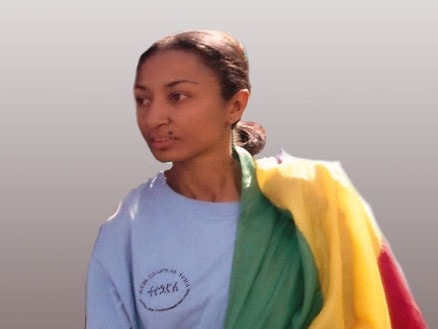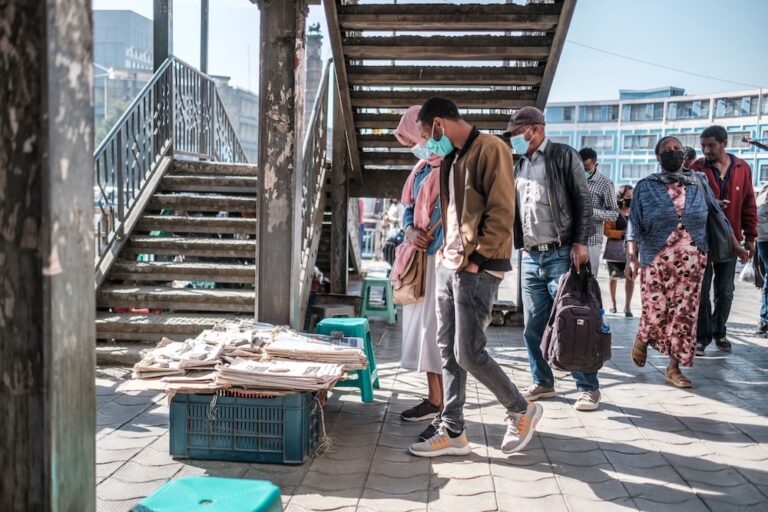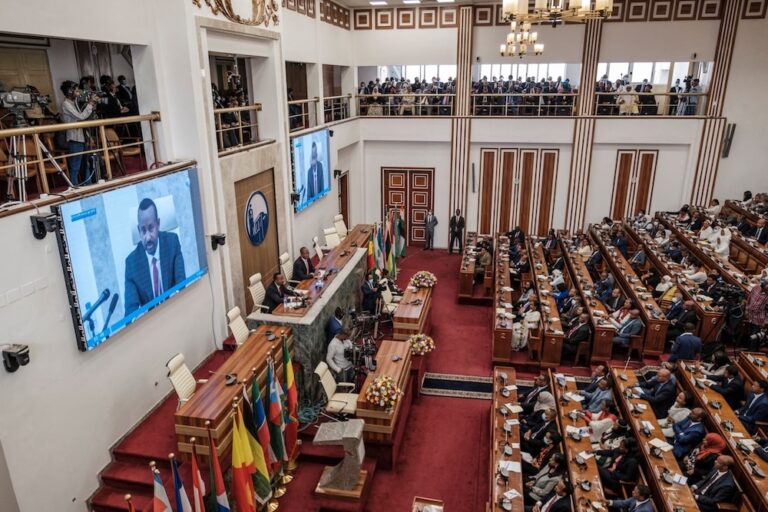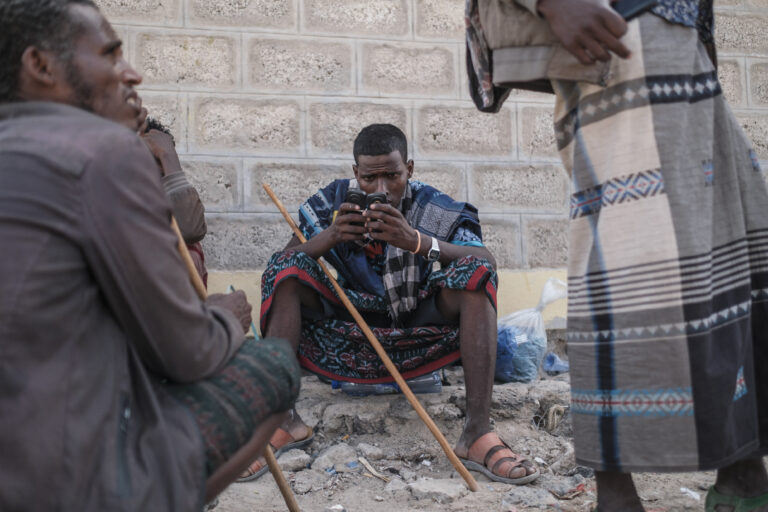By awarding Reyot Alemu with the 2013 Guillermo Cano World Press Freedom Prize, UNESCO is recognizing the imprisoned journalist’s courage in the face of the Ethiopian government’s hostility towards press freedom.
“Courageous” is the word that keeps cropping up in descriptions of Reyot Alemu, the Ethiopian journalist whose reporting and columns, mainly on political and economic issues, landed her a five-year prison term for “promoting terrorism”, and who was recently awarded the 2013 UNESCO-Guillermo Cano World Press Freedom Prize for her contributions to press freedom.
“Her real crime was courage,” Martin Schibbye, a Swedish journalist who spent over a year in an Ethiopian prison and who has met Alemu several times, told IPI.
Elias Kifle, an exiled commentator, said he has never met Alemu in person but that they were in touch. She is “a courageous journalist”, he wrote, citing her critical work on a government project to dam the Nile River. “It is a project no other journalist in Ethiopia would dare explore, or else face imminent danger,” he told IPI.
Kifle himself was sentenced in absentia last year to life in prison. Articles Alemu wrote for his website, The Ethiopian Review, were reportedly among the evidence that the prosecution presented against her.
In 2012, the International Women’s Media Foundation (IWMF) recognised Alemu’s resoluteness with their Courage in Journalism Award. Their profile of Alemu describes the journalist and former high school teacher as the kind of person who gave a portion of her salary to her students, who asked tough questions, and who wouldn’t stop even when her name was being smeared in the government-owned press.
Alemu was one of many critical journalists and opposition figures arrested in 2011 and later convicted of terrorism-related crimes. These included Swedish journalists Schibbye and Johan Persson, who were later freed, as well as Alemu, Woubshet Taye, Eskinder Nega and others, who were not.
IPI has repeatedly condemned the Ethiopian government’s efforts to silence its critics. Several of the publications that Alemu wrote for have been shut down, including Feteh, Addis Were, and a monthly magazine she founded, Change.
In January 2012, Alemu, Taye and Kifle, were convicted of terrorism. Human rights groups observing the trials of journalists condemned the absence of due process and the fact that the prosecution used online articles written by the defendants as evidence.
Schibbye recalled how he saw Alemu leaving the courthouse in Addis Ababa after a hearing one day, stacks of her articles in her arms. “Articles written and published by her in her legitimate profession as a journalist [were] suddenly evidence in support of terrorist allegations,” he wrote.
Alemu was sentenced to 14 years in prison for money laundering, conspiring to commit a terrorist act, and for supporting terrorism. In August 2012, the courts overturned the first two convictions, but in January 2013 they upheld her conviction for “promoting terrorism”.
This leaves Alemu with three more years to serve in Ethiopia’s Kality prison, where conditions are reportedly terrible and have affected her health. In 2012, the journalist was allowed to leave prison in order to have a malignant tumour in her breast removed but was sent back immediately afterwards, leaving her no time to recover, the IWMF said.
But jailing and silencing journalists only makes the world more eager to hear what they have to say. Before her incarceration, Alemu was “well known among political reporters”, but not to the Ethiopian media as a whole, one journalist who asked not to be named told IPI. Now she is the subject of countless articles, and has been given two international journalism awards, from UNESCO and the IWMF. The heavy price, of course, is her freedom.
Of the columnists behind bars, Schibbye wrote: “They are intelligent and well-educated, they could have chosen an easy life, they could have chosen another profession.” But, he wrote, their “love for the truth, for their country, for their fellow human beings and for Ethiopia made them into journalists.”
Alemu could have sought a pardon in return for release from prison, but she has so far refused to say she is guilty, according to reports and local journalists. Alemu has said: “I was preparing articles that oppose injustice. When I did it, I knew that I would pay the price for my courage and I was ready to accept that price.”
Naomi Hunt is a Senior Press Freedom Adviser at IPI, where she focuses on Africa and the Middle East. Konstantin Balev is an intern at IPI and is working on a Master’s Degree in International Relations at Webster University. IPI is a global network of publishers, editors and leading journalists based in Vienna, Austria, and dedicated to the defence of press freedom around the world. You can read more about IPI at www.freemedia.at.



